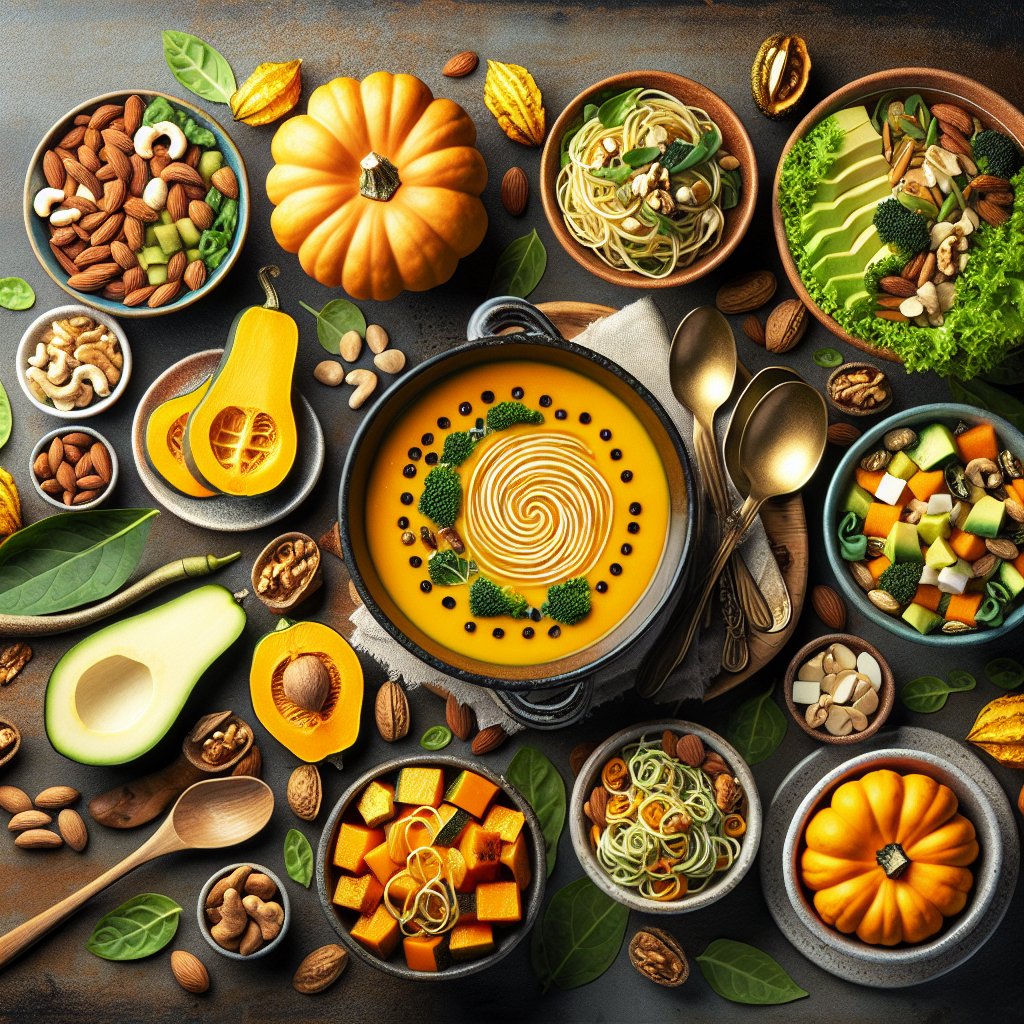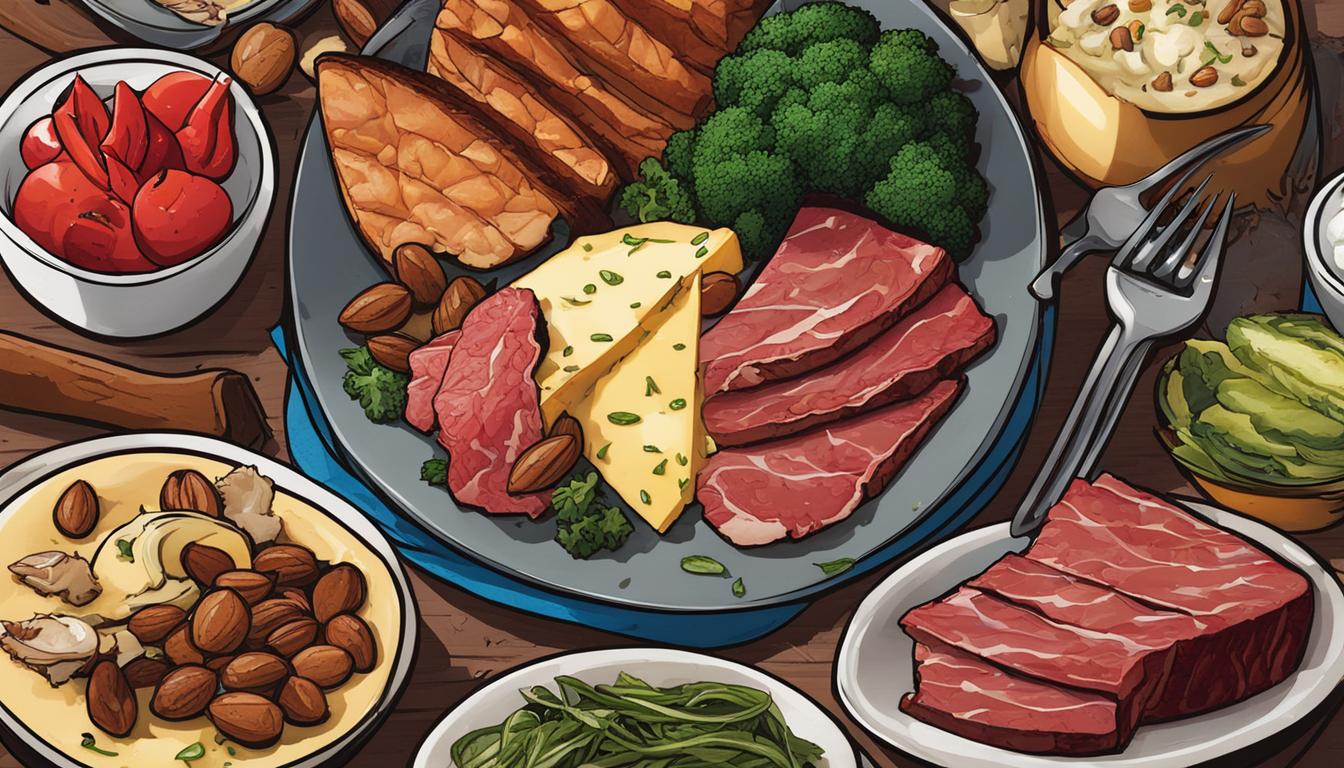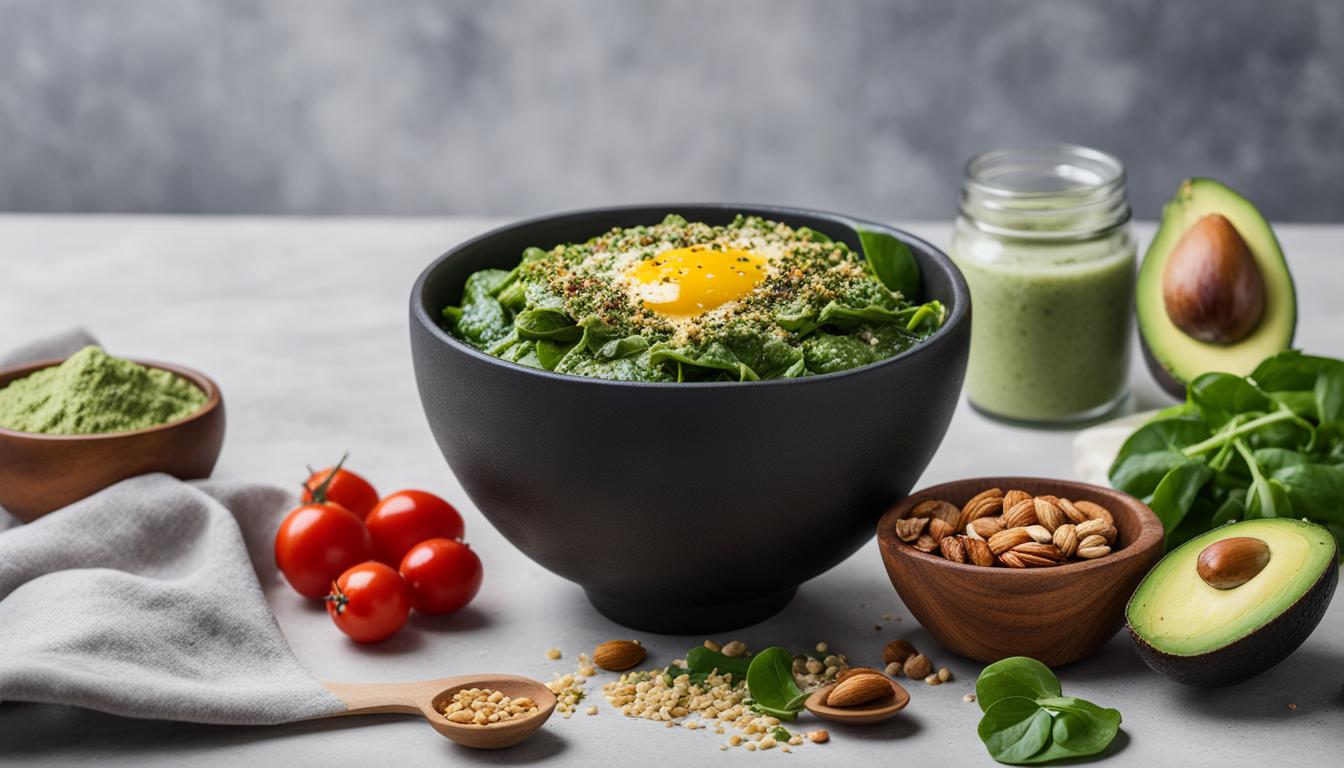Kabocha Keto Craze: Unveiling the Origin, Nutrition, and Amazing Health Benefits for Your Diet!
What is Kabocha?
Kabocha, also known as Japanese pumpkin or kabocha squash, is a type of winter squash that has been capturing the hearts and taste buds of food enthusiasts, especially those following the keto diet. This versatile and nutrient-dense vegetable has its origins in Japan and is popular in various Asian cuisines.
Characterized by its sweet flavor and dense, smooth texture, kabocha is typically small to medium in size, with a squat shape and dark green skin. Its flesh is vibrant orange and becomes even sweeter and creamier when cooked. This flavorful squash is packed with essential nutrients and has become a staple in many healthy, low-carb kitchens.
When it comes to cooking, kabocha can be used in a variety of ways. It’s commonly roasted, steamed, pureed, or added to soups and stews. Its natural sweetness makes it a delightful addition to both sweet and savory dishes, providing a unique depth of flavor to any recipe. Its versatility and compatibility with different cooking methods make it an ideal ingredient for those seeking to maintain a ketogenic lifestyle.
In terms of nutrition, kabocha is a standout performer. It’s a rich source of beta-carotene, the precursor to vitamin A, which is essential for eye health and immune function. Additionally, it provides a significant amount of vitamin C, aiding in collagen formation and enhancing iron absorption. Kabocha also delivers a healthy dose of fiber, important for digestive health and maintaining a feeling of fullness. With its impressive nutrient profile and low carbohydrate content, including kabocha in a keto meal plan can be incredibly beneficial.

Detailed breakdown of the nutritional composition of Kabocha
Kabocha, also known as Japanese pumpkin, is a nutrient-dense vegetable that is gaining popularity among keto enthusiasts. Let’s take a closer look at its impressive nutritional profile and how it can be a valuable addition to your keto diet.
Macronutrients: A one-cup serving of cooked kabocha squash (approximately 245g) contains only 40 calories, making it a fantastic low-calorie, nutrient-dense food choice. In addition, it provides around 9g of total carbohydrates, with an impressive 2.7g of dietary fiber, resulting in a net carb content of approximately 6.3g per serving. This low net carb content makes it an excellent vegetable to incorporate into a keto meal plan.
Micronutrients: Kabocha is a rich source of essential micronutrients. It is packed with vital vitamins and minerals, including vitamin A, vitamin C, vitamin B6, and folate. Moreover, it is a good source of minerals such as potassium, magnesium, and iron, which play key roles in supporting overall health and well-being.
Potential benefits of Kabocha on a keto diet
When following a keto diet, it’s crucial to choose foods that not only align with the macronutrient requirements but also offer a plethora of micronutrients. Kabocha perfectly fits the bill by providing a noteworthy nutritional profile that supports the following benefits:
1. Low in net carbs: With its low net carb content, kabocha can be included in keto meal plans without jeopardizing ketosis, making it an excellent choice for those following a ketogenic lifestyle.
2. Rich in fiber: The high fiber content promotes digestive health and contributes to a feeling of fullness, which can be beneficial for individuals managing weight on a keto diet.
Incorporating kabocha into your keto diet can provide a range of essential nutrients while contributing to overall satiety and satisfaction.

3. Health Benefits of Kabocha on a Keto Diet
When it comes to following a keto diet, kabocha squash can be a fantastic addition to your meal plan. Not only is it delicious, but it also offers a wide range of health benefits that can support your ketogenic lifestyle.
Impact on Weight Loss
One of the most sought-after benefits of kabocha on a keto diet is its impact on weight loss. Kabocha is low in calories and packed with fiber, which can help you feel full and satisfied for longer periods. Additionally, it’s rich in nutrients like vitamin C, iron, and B-vitamins, making it a nourishing choice for those looking to shed excess pounds while following a keto diet.
Effect on Blood Sugar Levels
For individuals on a keto diet, managing blood sugar levels is crucial. Kabocha squash has a lower carbohydrate content compared to other types of squash, making it a suitable option for those looking to maintain stable blood sugar levels while following a ketogenic eating pattern. The fiber in kabocha also plays a role in slowing down the absorption of sugar, which can contribute to better blood sugar control.
Overall Well-being
Incorporating kabocha into your keto diet can contribute to your overall well-being in several ways. The presence of antioxidants such as beta-carotene and vitamin C in kabocha can help combat oxidative stress and support a healthy immune system. Additionally, the high fiber content of kabocha promotes digestive health, which is essential for overall well-being and nutrient absorption.
In conclusion, kabocha is a versatile and nutrient-dense food that can positively impact weight loss, blood sugar levels, and overall well-being when incorporated into a keto diet regimen.

4. Kabocha Recipes for Keto
Now that you know all about the incredible benefits of kabocha for the keto diet, it’s time to dive into some delicious and easy-to-make recipes. Whether you’re craving savory or sweet, these kabocha recipes will satisfy your taste buds while keeping you in ketosis.
Kabocha Coconut Soup
Ingredients:
- 1 small kabocha squash, peeled, deseeded, and chopped
- 1 can of coconut milk
- 1 cup of chicken or vegetable broth
- 1 tablespoon of coconut oil
- 1 small onion, chopped
- 2 cloves of garlic, minced
- 1 teaspoon of curry powder
- Salt and pepper to taste
Instructions:
- In a pot, sauté the onion and garlic in coconut oil until soft.
- Add the chopped kabocha and curry powder, and stir for a few minutes.
- Pour in the coconut milk and broth. Bring to a boil, then reduce to a simmer and cook until the kabocha is tender.
- Use a blender to purée the soup until smooth.
- Season with salt and pepper, and enjoy this creamy, comforting soup.
Nutritional information:
One serving contains approximately 180 calories, 15g of fat, 10g of net carbs, and 3g of protein.
Kabocha Fries
With these mouthwatering kabocha recipes, you can effortlessly incorporate this nutrient-packed vegetable into your keto lifestyle. Bon appétit!

Tips for Incorporating Kabocha into a Keto Meal Plan
So, you’ve discovered the amazing benefits of kabocha and want to incorporate it into your keto meal plan. Great choice! Kabocha, also known as Japanese pumpkin, is a fantastic addition to a well-rounded ketogenic diet. Let’s explore some tips and suggestions to make the most of this nutritious and delicious vegetable.
Portion Sizes
When incorporating kabocha into your keto meal plan, it’s essential to be mindful of portion sizes. A 100-gram serving of kabocha contains only about 7 grams of net carbohydrates, making it an excellent choice for keto. To stay within your carb limit, aim for a serving size of around ½ to 1 cup of cooked kabocha, which equates to roughly 100-200 grams. This portion size allows you to enjoy the sweet, nutty flavor of kabocha while remaining in ketosis.
Meal Timing and Pairing Options
Consider including kabocha in your meals earlier in the day to give your body ample time to utilize the natural sugars for energy. Pairing kabocha with protein-rich foods like grilled chicken, baked fish, or tofu can help create a well-rounded keto meal. The combination of kabocha’s complex carbohydrates and protein can provide a sustained release of energy, keeping you feeling satisfied and energized throughout the day.
Additionally, don’t hesitate to pair kabocha with other low-carb vegetables such as spinach, kale, or cauliflower to create colorful and nutrient-dense keto-friendly dishes.
With these tips in mind, you can confidently incorporate kabocha into your keto meal plan and savor its delicious flavor while reaping its nutritional benefits.
Stay tuned for more exciting ways to incorporate kabocha into your keto journey!
Total word count: 248
Shopping Tips for Kabocha
So you’ve decided to incorporate Kabocha into your keto lifestyle – great choice! Now, let’s ensure that you select, store, and prepare this wonderful vegetable for the ultimate freshness and flavor.
Selecting Kabocha
When choosing the perfect Kabocha, look for one that feels heavy for its size with a hard, dry stem. A vibrant, deep green color indicates freshness, while the rind should be firm and free from any soft spots or blemishes. If possible, opt for organic or locally sourced Kabocha to ensure the highest quality and to support sustainable farming practices.
Storing Kabocha
Once you’ve selected your Kabocha, it’s crucial to store it properly to maintain its freshness. Keep it in a cool, dark place with good ventilation, such as a pantry or a cellar. Stored this way, it can last for several weeks, allowing you to enjoy its flavor and nutritional benefits over an extended period.
Preparing Kabocha
Preparing Kabocha is quite simple and versatile. Start by washing the outer rind, then carefully cut the squash in half, scoop out the seeds, and slice it into wedges or cubes. You can then roast, steam, or puree it for soups, stews, or even keto-friendly desserts.
By following these guidance on selecting, storing, and preparing Kabocha, you’re ensuring its optimal freshness and flavor, making it a delightful and nutritious addition to your keto diet.
Addressing Potential Risks and Considerations When Consuming Kabocha on a Keto Diet
When embracing the ketogenic lifestyle, it’s crucial to be mindful of potential risks or considerations associated with certain foods, including kabocha. Let’s delve into some essential points to ensure you are well-informed and can enjoy this delightful vegetable responsibly.
Carb Content and Ketosis
One consideration when incorporating kabocha into your keto diet is its carb content. While kabocha is lower in carbs compared to other winter squashes, it still contains a moderate amount. A 100-gram serving of kabocha provides about 7 grams of net carbs. It’s vital to factor in these carbs when planning your overall daily carb intake to maintain ketosis.
Allergens and Sensitivities
For individuals with known sensitivities or allergies to members of the squash family, such as pumpkin or other varieties of squash, consuming kabocha may pose a risk. If you have a history of allergic reactions to these foods, it’s advisable to proceed with caution or consult with a healthcare professional before including kabocha in your keto meal plans.
Medical Conditions and Medication Interactions
If you have certain medical conditions or are taking medications that can be affected by changes in potassium or vitamin K intake, it’s prudent to be aware that kabocha is a good source of both. Conditions such as kidney disease or the use of blood-thinning medications may require careful monitoring of potassium and vitamin K levels, making it important to consider these factors when adding kabocha to your keto regimen.
By being mindful of these potential risks and considerations, you can navigate the inclusion of kabocha into your keto diet safely and confidently, reaping its fantastic nutritional benefits while sustaining your ketogenic journey effectively.


